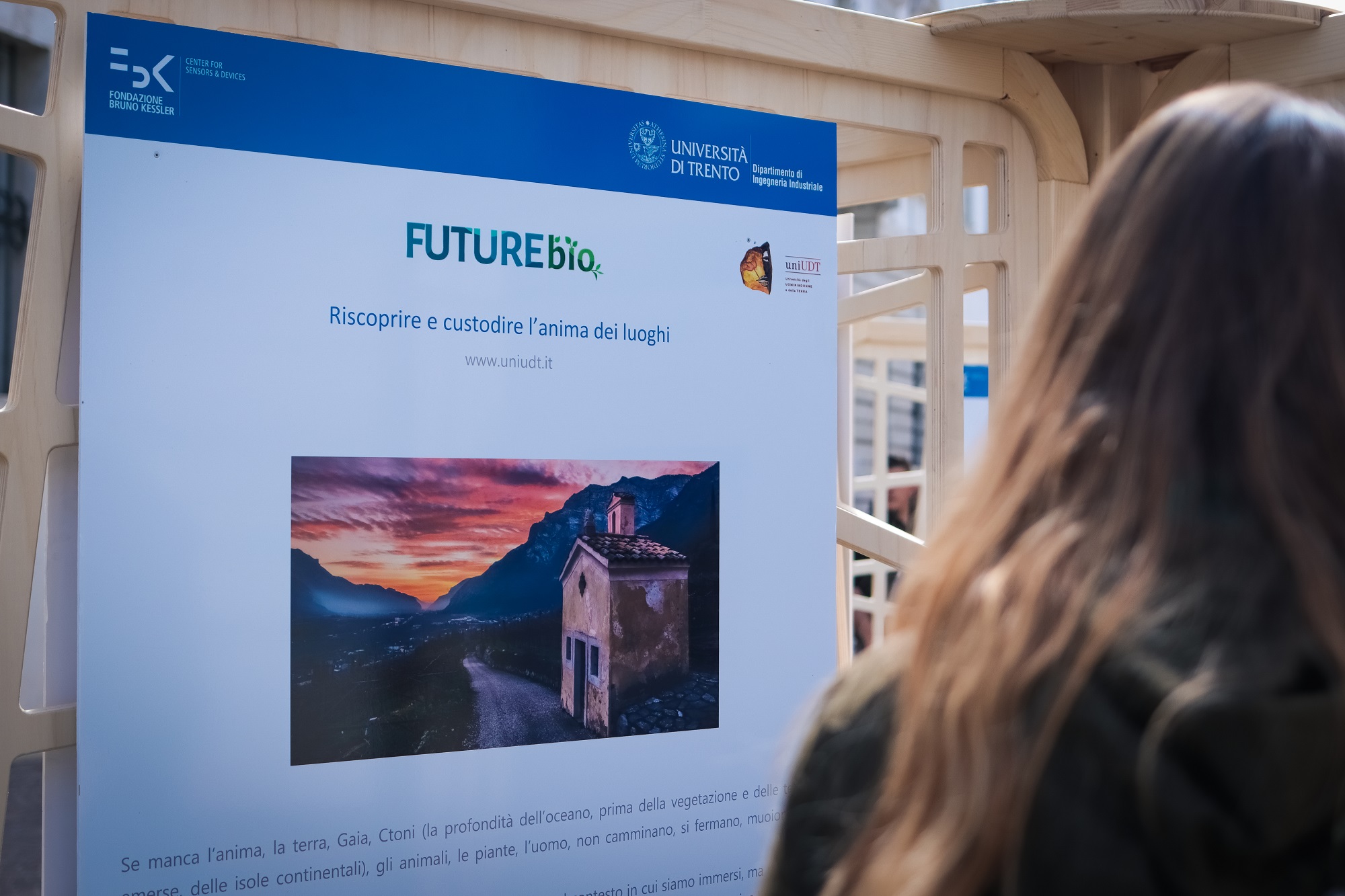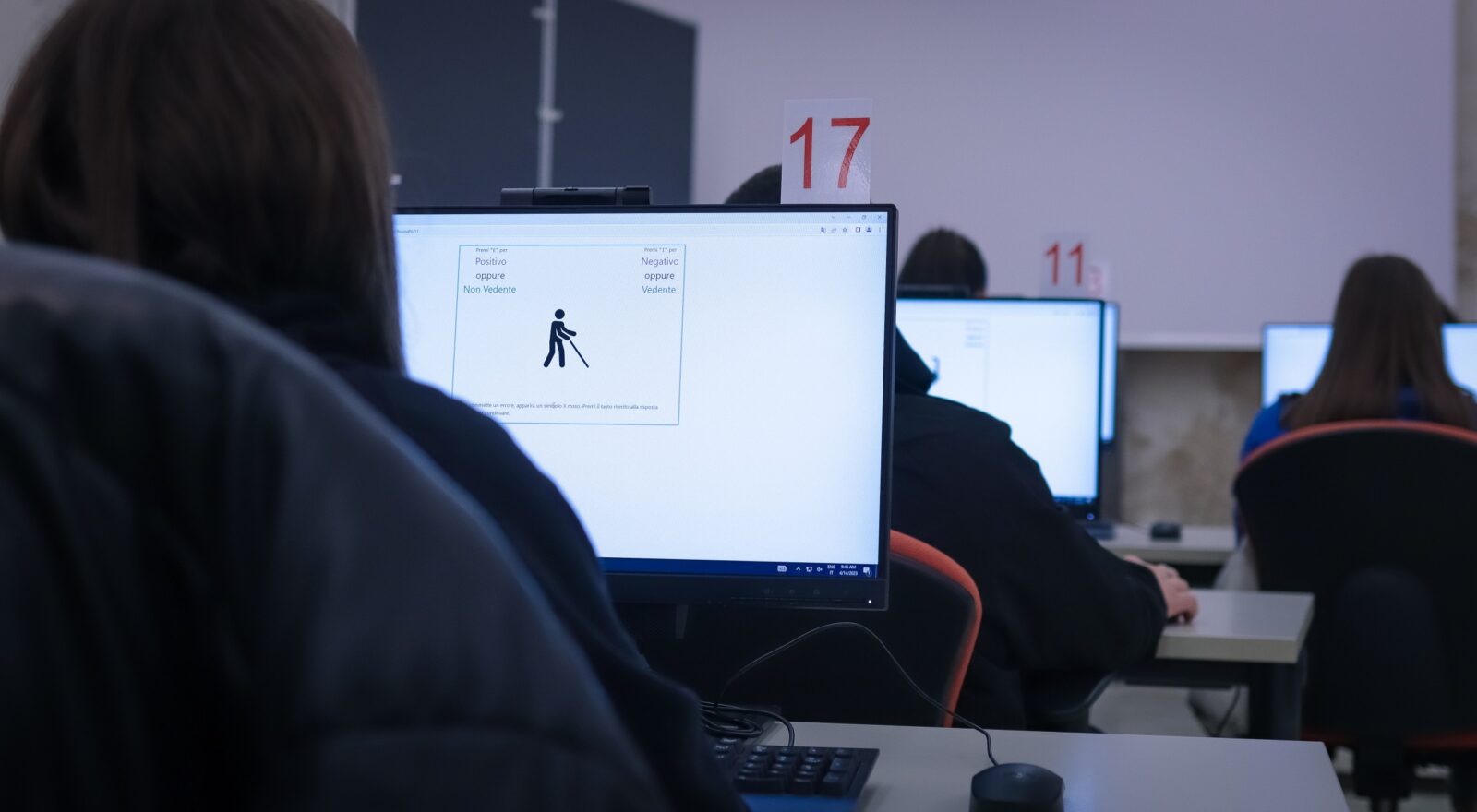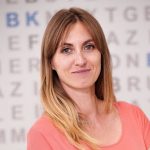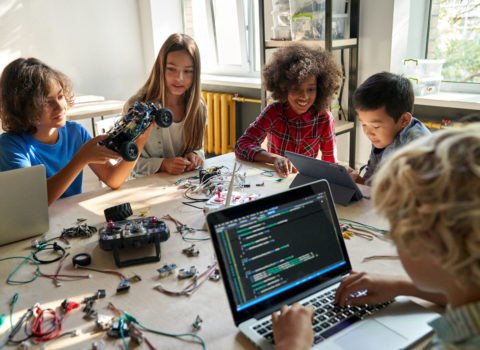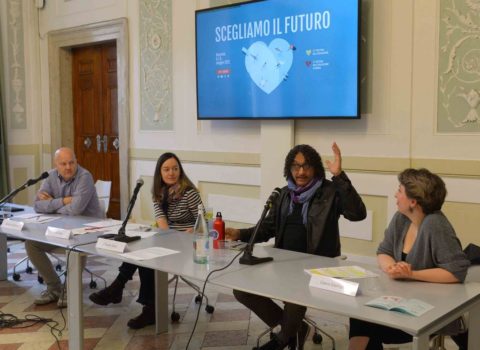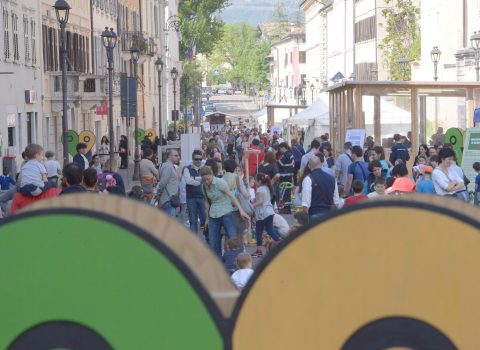EDUCA 2023: new alphabets. Let’s build together the lexicon of the future
Unmissable again in the 2023 edition the FBK proposals in the three-day Rovereto education festival.
The year 2023 finally marked the return of the EDUCA education festival in full swing, with audience and speakers in presence and without masks to cover the smiles that, when good things are done, surface on faces.
From April 14 to 16, 2023 Rovereto bustled with exhibitions, lectures, workshops, performances, and book presentations that shared the same theme: “New Alphabets. Let’s build together the lexicon of the future.” FBK also took part, as usual, in the event, both in the organizational phase and with various initiatives.
During the first day, dedicated to local schools, a class from Filzi High School in Rovereto performed a test on unconscious stereotypes towards visually impaired people developed as part of the “SENSES – Seeing with new senses” project. It is a computer test, therefore to be carried out on a PC, which consists of displaying some icons representing blind people (e.g.: symbol of a man walking with a stick or a pair of dark glasses) or sighted people performing various activities, to which are associated moods (e.g. : happiness, sadness, distress, etc.) or definitions (positive/negative, sighted/blind); using the left and right mouse button, it is asked to combine the proposed word or image with the feeling or definition that best seems to match it. In this way, researchers can understand whether, for example, negative feelings are associated with blind people (e.g., “sadness” associated with blind person or “positive” associated with sighted person). The test is intentionally structured so that the user has to perform it with speed and without thinking too much, thus matching the pairs instinctively (in fact, the average response time is evaluated).
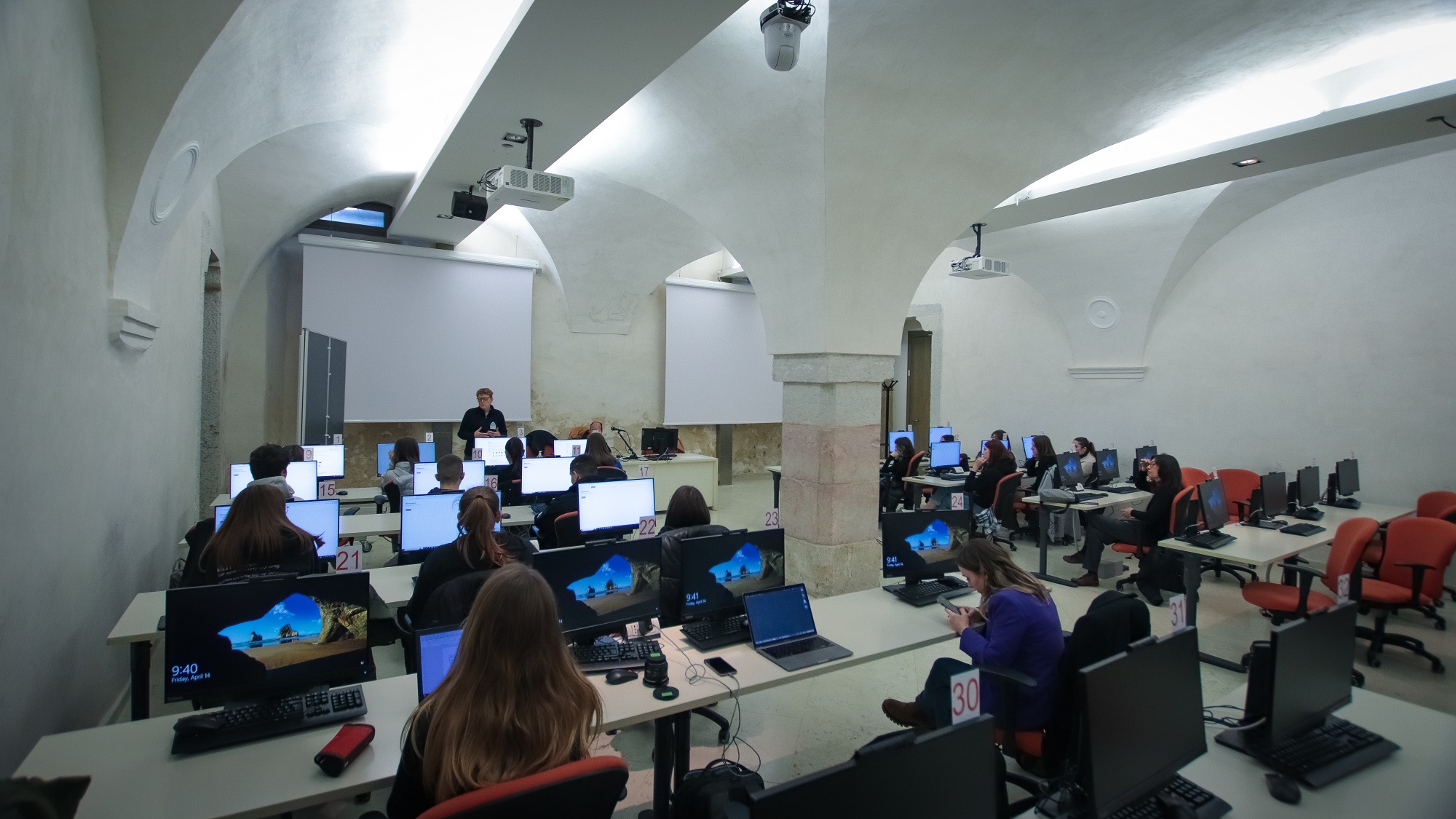
By examining the results obtained, it is possible to determine whether we have any attitudes, stereotypes, or even just projections about blind people. Some of these attitudes are conscious, others are not because they are less immediate or because we are actually ashamed to think of them. For example, we might think that a visually impaired person must necessarily be sad and frustrated, whereas in fact he or she can have an absolutely full and satisfying life.
Having stereotypes is a mental mechanism that is almost impossible to escape, which helps and facilitates us in our daily lives by creating predetermined boxes in which to place a certain thing; it is not necessarily negative but it can become so, and being aware of it opens our minds and helps us free ourselves from some kind of urban legends or social constructs.
After an introduction of explanation and awareness-raising about the world of visually impaired people led by Irene Matassoni of AbilNova Cooperativa Sociale, the researchers Sergiu Burlacu and Federico Podestà of FBK-IRVAPP examined the results of the tests carried out by the class: to pair “sighted person” with “positive” and “blind person” with “negative” on average it took the students 0.97 seconds, while for the pairing of “sighted person-negative” and “blind person-positive” 1.57 seconds, thus markedly longer because, when thinking of a blind person, one tends to associate negative feelings or moods.
The results of the test, which we recall also looked at the time it took the user to respond, thus highlight implicit attitudes that may not necessarily have a direct impact on the way people behave toward blind people because, in everyday life, reasoning takes over.
To complete the workshop, the researchers proposed other small tests to the class, asking them to guess the time it took a Paralympic athlete to run the 400 m flat, surprisingly discovering that he/she took only 7 seconds longer than an able-bodied athlete!
Also on the same morning, students from some local schools performed again on the prestigious stage of the Zandonai Theater the well-tested show cheEntropia! and the related short film.
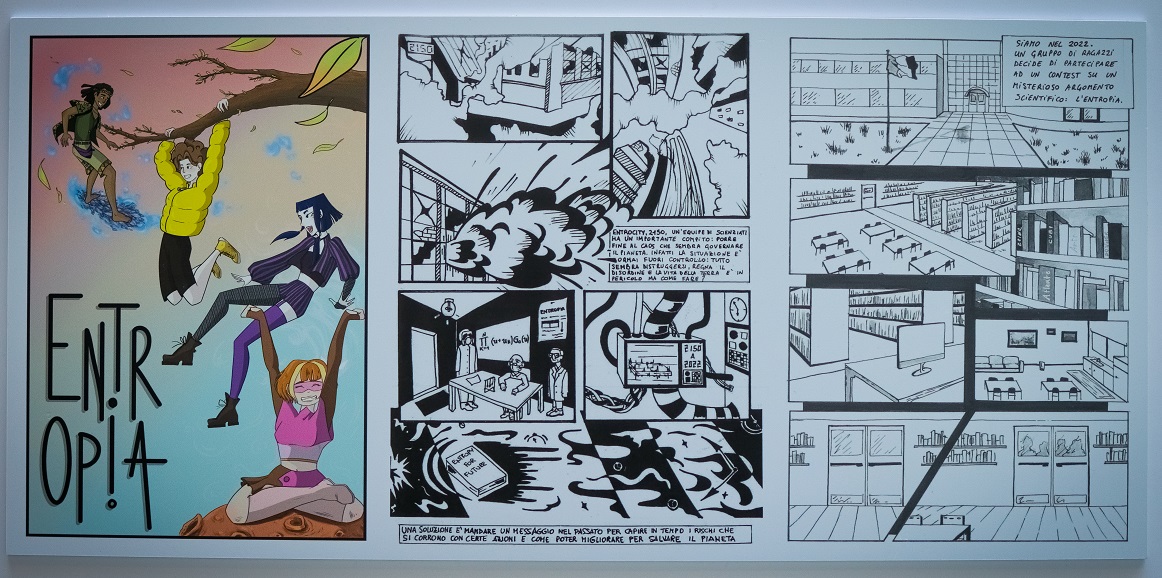
Also on Saturday morning there were two workshops involving FBK: Davide Azzolini of FBK-IRVAPP took part in the debate organized by ISPAT “Young people in Trentino between school and work,” while Massimo Bersani participated in organizing the workshop “Se dico acqua…” to raise awareness for a more responsible management of an increasingly limited and precious resource.
Finally, throughout the three days of the festival, the exhibitions with the comic strip panels ” Entropia!” at Palazzo Piomarta and 12 posters created as part of the Future Bio project, also curated by Massimo Bersani, on the theme of sustainability remained on display along Corso Bettini.
